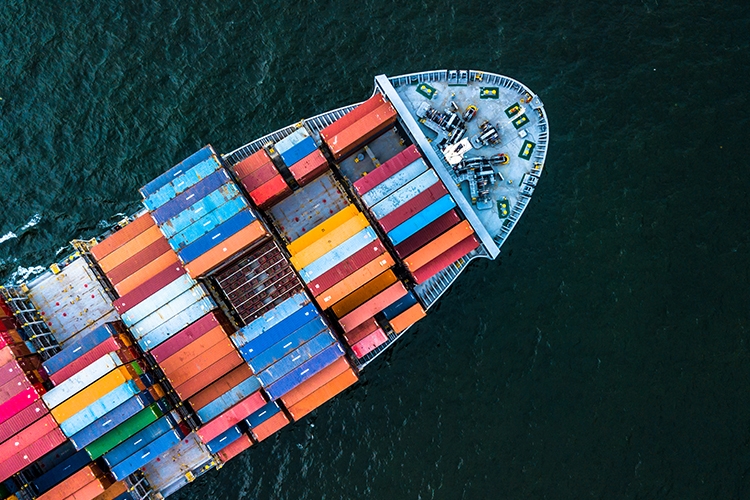By Ronnie Adcock, senior vice president and Darin N. Miller, NAMS-CMS, national marine manager, senior surveyor
Santa isn’t the only one experiencing fulfillment issues this time of year.
Cargo ships floating off the coast, a lack of shipping containers, a shortage of truck drivers, and COVID-related restrictions are impacting individuals and organizations across the globe. With the holidays approaching fast, it’s unlikely that supply chain challenges will subside. All eyes are turned toward the floating cargo containers filled with electronic devices and tablets; clothing, shoes, and fashion accessories; and seasonal children’s toys. As wish lists grow and concerns rise around the delivery and availability of these goods, consider these practical marine insights and suggestions:
Alternative ports
Many ships sit aimlessly off the coast of Long Beach, California with containers waiting to be unloaded. Looking for alternatives, some have considered making their way to the port of Houston, Texas or Miami, Florida. Although, such maneuvers are not without a cost. Even with the Panama Canal, there would be a significant delay in goods arriving on time. In addition, some of the alternative ports are not equipped to handle the draft of the larger vessels. There is also the issue of transporting goods across country from Houston or Miami to Long Beach for order fulfillment. Containers with perishable goods will be lost; some will be consumed by more traditional perils; those with inexpensive, low dollar items may be abandoned; and many orders will not make it in time to meet contractual deadlines.
Immediate loss reporting
As buyers and sellers wait on goods, planning strategies are underway. Cargo shipments that have arrived are being inspected. Like many lines of insurance, it is important to report cargo losses as soon as possible. This notification is necessary to trigger the claims process so a marine surveyor can determine what went wrong, the scope of damage, whether any goods can be salvaged and who is responsible. The sooner the process is completed, the sooner an insured can be indemnified for a cargo loss.
Necessary documentation
Insureds must provide the necessary shipping documentation surrounding a cargo claim. This can include the bill of lading, a commercial invoice and a packaging list. This will help the marine surveyor in investigating the loss, estimating damages and identifying potential recovery alternatives. In each case, it is important to understand the responsibilities of both the buyers and sellers, and these can vary significantly depending on the transaction.
Complete investigation
The marine surveyor’s expertise in determining how the damage occurred are critical. This is often one of the most difficult pieces of the puzzle to solve but marine surveyors today have access to a sophisticated range of tools, combined with their professional experience. For example, in addition to reviewing past weather reports and conditions, data loggers and sensors have advanced the process significantly. Such devices can help determine if a container has been subject to extreme temperatures or suffered a severe impact resulting in damage to the goods.
Cargo transportation
Looking more broadly, marine professionals focus on cargo claims associated with all types of transportation across land, sea and air, as well as specialty marine coverages. While marine expertise has always played a valuable role within the insurance industry as a specialty niche, the current supply chain crisis and the stunning pictures of these massive container ships have heightened the awareness of marine professionals.
With the holidays and gift-giving traditions upon us, businesses and consumers alike are focused on the delivery and availability of goods. Sedgwick will continue to monitor supply chain conditions and keep you updated on the latest developments.
Tags: cargo, cargo claim, Evolving risks + Response, Holiday, marine, marine container shipping, marine exposures, Mitigating risk, Supply chain, Supply chain disruptions, surveyor

